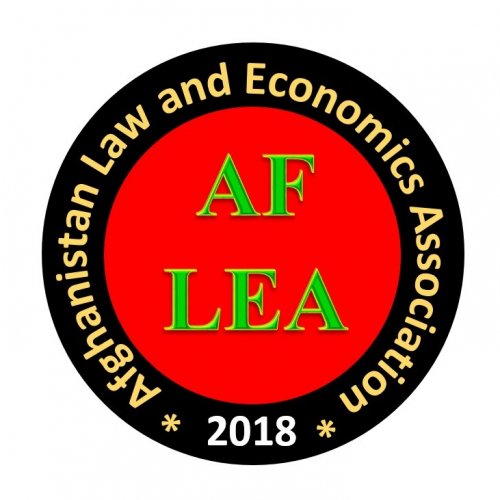Best State, Local, and Municipal Law Lawyers in Afghanistan
Share your needs with us, get contacted by law firms.
Free. Takes 2 min.
Or refine your search by selecting a city:
List of the best lawyers in Afghanistan
About State, Local, and Municipal Law in Afghanistan
State, Local, and Municipal Law in Afghanistan encompasses the legal frameworks governing the functioning and administration of state and local governments. This area of law is crucial for the establishment of public authorities and their interactions with citizens and businesses in Afghanistan. It includes regulations on local governance, public service delivery, municipal administration, taxation, and local development projects. Given Afghanistan's unique social and political fabric, these laws also interact with customary tribal laws and Islamic Sharia, creating a complex legal landscape.
Why You May Need a Lawyer
Legal expertise in State, Local, and Municipal Law might be necessary in several situations, including:
- Disputes with local government authorities regarding land use or property rights.
- Issues related to municipal services such as water, electricity, and waste management.
- Legal guidance on compliance with local tax obligations and business regulations.
- Assistance with navigating municipal permit and licensing processes.
- Conflicts involving the enforcement of municipal regulations or fines.
Consulting an experienced lawyer can help clarify rights and obligations, mediate conflicts, and ensure compliance with the applicable laws.
Local Laws Overview
Key aspects of local laws in Afghanistan relevant to State, Local, and Municipal Law include:
- Municipal Administration: Local governments in Afghanistan are tasked with providing essential services and infrastructure, including maintaining public safety and order.
- Land Use and Zoning: Municipalities regulate land development and usage through zoning laws and building codes to ensure orderly growth and infrastructure compatibility.
- Public Services: Laws governing the provision and regulation of public services such as water, electricity, waste management, and public transportation.
- Taxation and Fees: Local governments may levy taxes and fees to fund their activities, requiring compliance from residents and businesses.
- Dispute Resolution: Mechanisms exist for resolving disputes arising from local governance, often involving traditional dispute resolution methods alongside formal legal systems.
Frequently Asked Questions
What is the role of local governments in Afghanistan?
Local governments in Afghanistan operate under the state, implementing local administrative functions and providing public services to residents, such as sanitation, health, and infrastructure development.
How do local laws interact with national laws in Afghanistan?
Local laws must align with national legislation and policies. While local councils have specific authorities, they cannot contradict national laws and constitutional mandates.
What should I do if I have a dispute with a local government?
It's advisable to seek legal counsel to explore possible resolutions, which may include mediation, negotiation with the authorities, or formal legal proceedings if necessary.
Can local governments impose their own taxes?
Yes, local governments in Afghanistan can levy certain taxes and fees to support their operations. The scope and rate of taxation, however, are regulated by national law.
What is the process for obtaining a business license at the municipal level?
Business licensing typically involves submitting an application to the relevant municipal office, along with required documents such as identification, business plans, and proof of premises.
Are there specific laws that govern property rights in municipalities?
Yes, there are municipal laws that regulate property registration, zoning, and construction permits, while property rights are further protected under national law.
How can I access public services if there's a dispute with local authorities?
A lawyer can help navigate disputes and ensure access to equitable public services through negotiation or legal action.
What are zoning laws, and why do they matter?
Zoning laws dictate how land can be used in different areas, ensuring organized development and preventing conflicts between land uses, such as separating residential areas from industrial sites.
Can local law be enforced in autonomous tribal regions?
In Afghanistan, tribal regions with autonomous governance may observe customary laws, but they generally align with national policies where possible, particularly where state infrastructure is involved.
Is public participation allowed in local governance?
Public participation is encouraged in decision-making processes through community meetings and local council representations, though this can vary by region.
Additional Resources
Consider reaching out to the following organizations and governmental bodies for assistance with State, Local, and Municipal Law matters:
- The Ministry of Justice (MoJ) of Afghanistan
- The Afghanistan Independent Human Rights Commission (AIHRC)
- Provincial and District Government Offices
- Local Bar Associations for legal representation and advice
Next Steps
If you require legal assistance in State, Local, and Municipal Law in Afghanistan, begin by identifying the specific nature of the issue. Seek consultations from local legal experts or bar associations who specialize in this field. Be prepared with all relevant documentation and facts related to your case. This will lead to a more efficient consultation and ultimately, effective legal action if necessary.
Lawzana helps you find the best lawyers and law firms in Afghanistan through a curated and pre-screened list of qualified legal professionals. Our platform offers rankings and detailed profiles of attorneys and law firms, allowing you to compare based on practice areas, including State, Local, and Municipal Law, experience, and client feedback.
Each profile includes a description of the firm's areas of practice, client reviews, team members and partners, year of establishment, spoken languages, office locations, contact information, social media presence, and any published articles or resources. Most firms on our platform speak English and are experienced in both local and international legal matters.
Get a quote from top-rated law firms in Afghanistan — quickly, securely, and without unnecessary hassle.
Disclaimer:
The information provided on this page is for general informational purposes only and does not constitute legal advice. While we strive to ensure the accuracy and relevance of the content, legal information may change over time, and interpretations of the law can vary. You should always consult with a qualified legal professional for advice specific to your situation.
We disclaim all liability for actions taken or not taken based on the content of this page. If you believe any information is incorrect or outdated, please contact us, and we will review and update it where appropriate.
Browse state, local, and municipal law law firms by city in Afghanistan
Refine your search by selecting a city.









